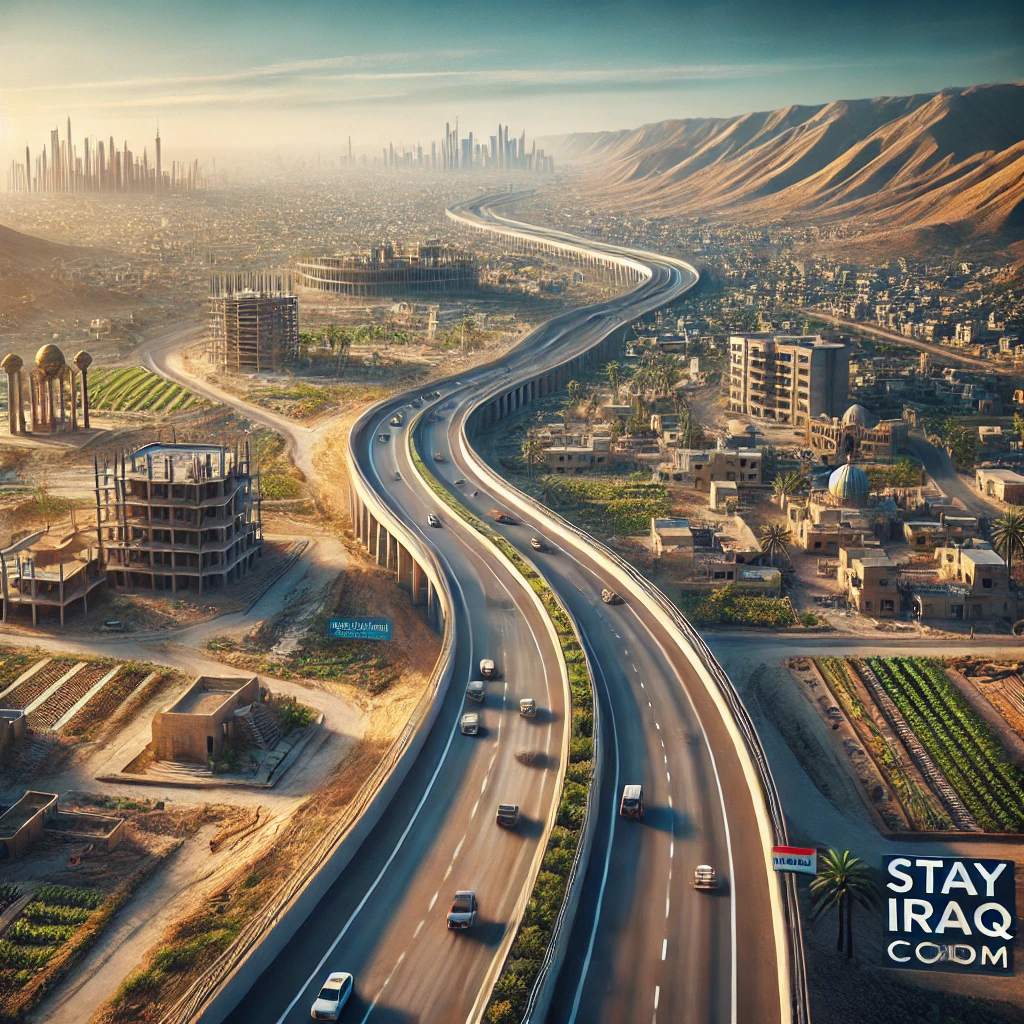Project that can deliver stability



The Iraq Development Road is a transformative infrastructure project poised to reshape Iraq’s economy, and position it as a central hub for global trade. This ambitious project, championed by Iraqi Prime Minister Mohammed Shia Al-Sudani, seeks to connect the Arabian Gulf with Europe through an extensive network of roads and railways. The route will span from the Grand Al-Faw Port in southern Iraq to the Turkish border, ultimately linking up with European markets.
Key Achievements and Objectives
Economic Diversification and Growth. The Development Road is more than just a transport corridor; it’s a strategic move to diversify Iraq’s oil-dependent economy. By facilitating faster trade routes between Asia and Europe, the project is expected to significantly reduce shipping times, cutting the journey from Shanghai to Rotterdam from 33 to just 15 days. This efficiency will position Iraq as a critical node in global trade, potentially generating around $4 billion in annual revenues. Wilson Center
Job Creation and Infrastructure Development: The project is set to stimulate the Iraqi economy by creating thousands of jobs. Alongside the primary transport infrastructure, plans include the construction of factories and workshops along the route, further boosting employment and economic activity. The project also aims to alleviate congestion in urban centres by redirecting economic activity to less densely populated areas
Iraq has gained strong international support for the Development Road project. Key backers include Turkey, Qatar, and the UAE, offering both financial help and technical expertise. This partnership highlights the project’s potential to boost regional stability and economic cooperation. For example, Turkey’s involvement aligns with its goal of becoming a trade hub, connecting Europe, the Middle East, and Asia (Arab News, Gulf International Forum).
The Development Road brings key environmental benefits by reducing reliance on older, less efficient routes like the Suez Canal. It also offers Iraq a strategic advantage, lessening its dependence on oil pipelines that are vulnerable to geopolitical tensions (Wilson Center)
Support and Vision The Development Road has gained solid political and financial backing from Iraq’s regional neighbours. The UAE and Qatar are major financial contributors, while Turkey’s involvement shows its strategic interest in regional trade. This cooperation among key regional players highlights the project’s regional importance, promoting economic integration and political stability across the Middle East (Gulf International Forum).
Future Prospects
By 2028, the project aims to have the capacity to transport 3.5 million containers and 22 million tons of bulk cargo annually. This capacity is expected to double by 2050, reflecting the project’s long-term potential. The first phase of the Grand Al-Faw Port, integral to the Development Road, is expected to be operational by early 2025, further accelerating the project’s momentum.
The Iraq Development Road is a groundbreaking initiative with the potential to turn Iraq into a key global trade hub. Backed by strong regional support, the project promises significant economic benefits and a clear vision for the future. It represents more than just a route for goods, it’s a symbol of Iraq’s potential to thrive on the global stage, emerging from decades of conflict as a beacon of progress.


